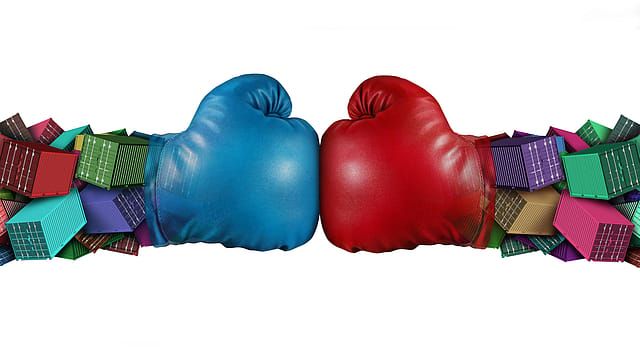Indian firms worried about trade protectionism
ADVERTISEMENT

With Western nations like the US stepping up efforts to protect their domestic job markets, Indian companies are most concerned about their business prospects in these countries. A survey by global financial services giant HSBC reveals that 86% of the Indian companies have cited protectionist policies in the West as their biggest worry.
As per the survey, nine out of ten companies in India feel that governments (of Western countries) have increasingly become protectionist and this has led to a surge in the cost of doing international business, altering trade routes and raising hurdles to obtaining trade finance.
“Companies are adapting business plans and relationships to participate in shifting supply chains. Strategies include increasing regional trade, establishing joint ventures or local subsidiaries in more markets and capitalising on trends in consumer demands and digital technologies,” says Rajat Verma, head of commercial banking, HSBC India.
The survey adds that companies are especially concerned about their future in the US with the Donald Trump’s government tightening the noose around Indian professionals working in the country. Early last year, the US President Donald Trump had passed an executive order called ‘Buy American and Hire American’ and accused Indian companies of unfairly taking away jobs in the country.
January 2026
Netflix, which has been in India for a decade, has successfully struck a balance between high-class premium content and pricing that attracts a range of customers. Find out how the U.S. streaming giant evolved in India, plus an exclusive interview with CEO Ted Sarandos. Also read about the Best Investments for 2026, and how rising growth and easing inflation will come in handy for finance minister Nirmala Sitharaman as she prepares Budget 2026.
A senior administration official had called out companies like Tata Consultancy Services, Infosys and Cognizant in the briefing to justify the need for the ‘Buy American and Hire American’ executive order.
A White House transcript of the press briefing from April 17, 2017 states, “So some companies oftentimes are called outsourcing firms. You may know their names well, but like the top recipients of the H1B visa are companies like Tata, Infosys, Cognizant — they will apply for a very large number of visas, more than they get, by putting extra tickets in the lottery raffle, if you will, and then they’ll get the lion’s share of visas. Which is very different than I think how most people think of the H1B program — they imagine it for more — being for — again, they would think of it as being for skilled domestic work, rather than contract work.”
The Trump administration asked Indian IT companies such as Cognizant, Infosys and others to hire more Americans than ‘foreign nationals’ for their projects in the US, which would double the cost of business for the firms. Besides, President Trump has tightened the H1-B visa regulations, commonly issued to foreign professionals working in the US, which is expected to further impact the businesses of these firms.
Other than this, altering trade routes has been another aftermath of protectionist policy in Western countries. About 40% of the respondents in the HSBC survey said that they will look for alternatives to a certain trade route as against the global average of 26%. For instance, following the Brexit, UK is expected to take a tough stand on the movement of people and outsourcing jobs. In such a scenario, companies are expected to look at other trade routes to bolster their growth.
“As a result of especially-high concern about protectionism, trade initiatives that are likely to lower trade barriers are viewed positively in India. Firms are most united in the positive impact of ASEAN 2025 and SAFTA on their businesses,” notes the HSBC survey.
HSBC’s survey recommends Indian companies to look at neighbouring countries for growth in their businesses. However, the report recommends Indian companies to look at neighbouring countries for growth in their businesses. Interestingly, the report also encourages Indian firms from China’s Belt and Road, "instead of campaigning against such initiatives".
